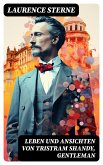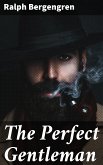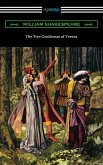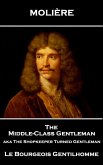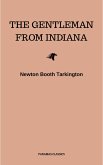The Life and Opinions of Tristram Shandy by Laurence Sterne also known as Tristram Shandy, is a novel by Laurence Sterne. It was published in nine volumes, the first two appearing in 1759, and seven others following over the next seven years (vols. 3 and 4, 1761; vols. 5 and 6, 1762; vols. 7 and 8, 1765; vol. 9, 1767).
It purports to be a biography of the eponymous character. Its style is marked by digression, double entendre, and graphic devices. The first edition was printed by Ann Ward on Coney Street, York.
Sterne had read widely, which is reflected in Tristram Shandy. Many of his similes, for instance, are reminiscent of the works of the metaphysical poets of the 17th century, and the novel as a whole, with its focus on the problems of language, has constant regard for John Locke's theories in An Essay Concerning Human Understanding. Arthur Schopenhauer called Tristram Shandy one of "the four immortal romances."
While the use of the narrative technique of stream of consciousness is usually associated with modernist novelists, Tristram Shandy has been suggested as a precursor.
It purports to be a biography of the eponymous character. Its style is marked by digression, double entendre, and graphic devices. The first edition was printed by Ann Ward on Coney Street, York.
Sterne had read widely, which is reflected in Tristram Shandy. Many of his similes, for instance, are reminiscent of the works of the metaphysical poets of the 17th century, and the novel as a whole, with its focus on the problems of language, has constant regard for John Locke's theories in An Essay Concerning Human Understanding. Arthur Schopenhauer called Tristram Shandy one of "the four immortal romances."
While the use of the narrative technique of stream of consciousness is usually associated with modernist novelists, Tristram Shandy has been suggested as a precursor.



